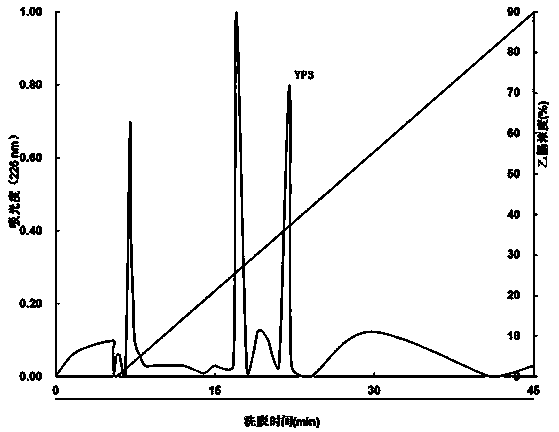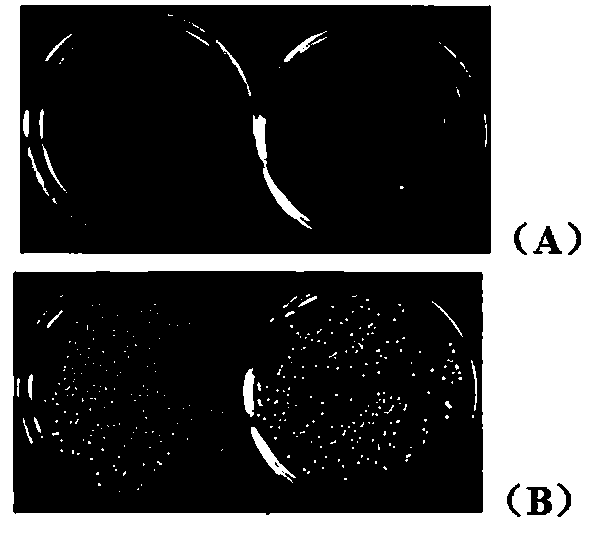Antifreeze polypeptide for protecting bacteria from low temperature freeze-thawing damage and preparation method thereof
An antifreeze polypeptide and low temperature technology, applied in the field of antifreeze polypeptide, can solve problems such as loss of quality, damage to cells and tissue structures, and achieve high antifreeze activity
- Summary
- Abstract
- Description
- Claims
- Application Information
AI Technical Summary
Problems solved by technology
Method used
Image
Examples
Embodiment 1
[0026] Weigh 1.65 g of fish skin collagen and dissolve it in 6 ml of Mili-Q water, then adjust its pH to 9.0 with 2 mol / L NaOH. First heat the solution to 45°C in a water bath, then add the corresponding amount of enzyme according to the enzyme-substrate ratio of 1:20, and the enzymatic hydrolysis time is 30 minutes. Then inactivate the enzyme in a boiling water bath for 10 minutes, then centrifuge at 14000 rpm for 10 minutes after cooling, and collect the supernatant for later use.
[0027] The supernatant was separated by Sephadex G-50 gel chromatography (length 100cm, diameter 2.6cm), the eluent was deionized water, the flow rate was 2mL / min, and the elution peak was measured at 225nm. Elution peak of antifreeze activity.
[0028] The elution peak with the best antifreeze activity separated by Sephadex G-50 gel chromatography is separated in the next step, separated by Sulfopropyl-Sepadex C-25 cation exchange chromatography (length 55cm, diameter 2.0cm), and eluted The so...
PUM
 Login to View More
Login to View More Abstract
Description
Claims
Application Information
 Login to View More
Login to View More - R&D
- Intellectual Property
- Life Sciences
- Materials
- Tech Scout
- Unparalleled Data Quality
- Higher Quality Content
- 60% Fewer Hallucinations
Browse by: Latest US Patents, China's latest patents, Technical Efficacy Thesaurus, Application Domain, Technology Topic, Popular Technical Reports.
© 2025 PatSnap. All rights reserved.Legal|Privacy policy|Modern Slavery Act Transparency Statement|Sitemap|About US| Contact US: help@patsnap.com



